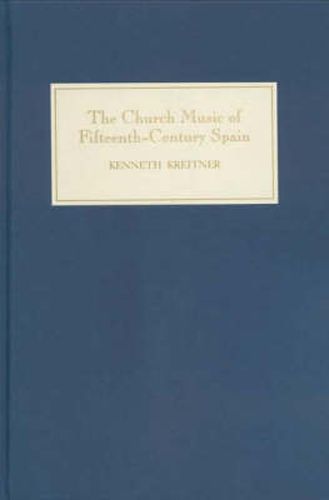Readings Newsletter
Become a Readings Member to make your shopping experience even easier.
Sign in or sign up for free!
You’re not far away from qualifying for FREE standard shipping within Australia
You’ve qualified for FREE standard shipping within Australia
The cart is loading…






The arrival of Francisco de Penalosa at the Aragonese court in May 1498 marks something of an epoch in the history of Spanish music: Penalosa wrote in a mature, northern-oriented style, and his sacred music influenced Iberian composers for generations after his death. Kenneth Kreitner’s new book looks at the church music sung by Spaniards in the decades before Penalosa, a repertory that has long been ignored because much of it is anonymous and because it is scattered through manuscripts better known for something else. He identifies sixty-seven pieces of surviving Latin sacred music that were written in Spain between 1400 and the early 1500s, and he discusses them source by source, revealing the rapid and dramatic change, not only in the style and sophistication of these pieces, but in the level of composerly self-consciousness shown in the manuscripts. Within a generation or so at the end of the fifteenth century, Spanish musicians created a new national music just as Ferdinand and Isabella were creating a new nation. KENNETH KREITNER teaches at the University of Memphis.
$9.00 standard shipping within Australia
FREE standard shipping within Australia for orders over $100.00
Express & International shipping calculated at checkout
Stock availability can be subject to change without notice. We recommend calling the shop or contacting our online team to check availability of low stock items. Please see our Shopping Online page for more details.
The arrival of Francisco de Penalosa at the Aragonese court in May 1498 marks something of an epoch in the history of Spanish music: Penalosa wrote in a mature, northern-oriented style, and his sacred music influenced Iberian composers for generations after his death. Kenneth Kreitner’s new book looks at the church music sung by Spaniards in the decades before Penalosa, a repertory that has long been ignored because much of it is anonymous and because it is scattered through manuscripts better known for something else. He identifies sixty-seven pieces of surviving Latin sacred music that were written in Spain between 1400 and the early 1500s, and he discusses them source by source, revealing the rapid and dramatic change, not only in the style and sophistication of these pieces, but in the level of composerly self-consciousness shown in the manuscripts. Within a generation or so at the end of the fifteenth century, Spanish musicians created a new national music just as Ferdinand and Isabella were creating a new nation. KENNETH KREITNER teaches at the University of Memphis.